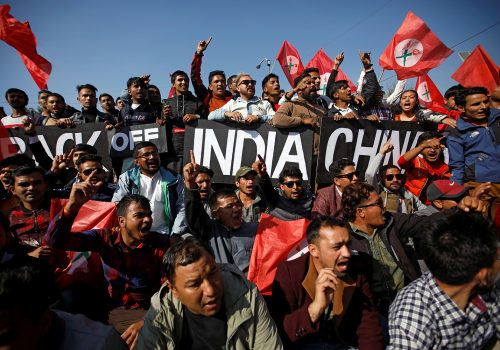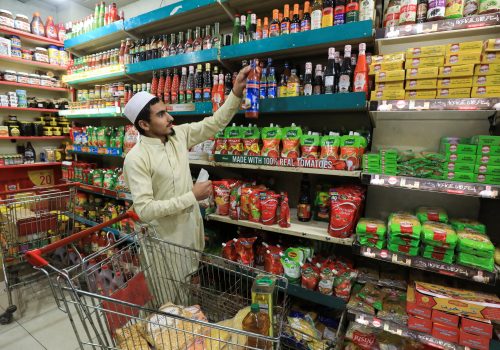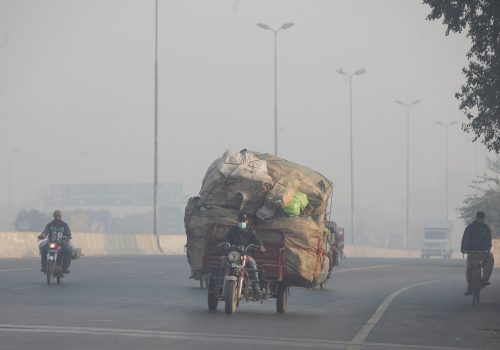South Asia is abundantly vulnerable to the direct and indirect effects of an impending climate crisis arising from increasing global temperatures. Global warming and climate change disproportionately affect countries in this region, especially given the high population density and dependence on agriculture.
According to the World Bank, during the past decade almost 700 million people–half of South Asia’s population–were affected by climate related disasters such as droughts and floods. These compound the preexisting issues relating to poverty. It is thus imperative that climate adaptation policies take utmost priority in governmental legislation.
In particular, Bangladesh, the Maldives, and Sri Lanka have many low-lying areas which are among the foremost regions bearing the brunt of climate change due to rising sea levels. To explore these issues, the Atlantic Council’s South Asia Center brought together a panel of experts to discuss the effects of climate change on the economy, food and energy security, and migration in these three South Asian countries.
This panel was recorded on May 12, 2022.
Featuring
Dr. Athaulla Rasheed
Doctoral Researcher
Australian National University, Canberra
Dr. Asanka Wijesinghe
Research Fellow
Institute of Policy Studies, Colombo
Sirazoom Munira Silvy
Program Officer
Climate Vulnerable Forum
Support to CVF Presidency of GoB
Dr. Kumar Biswajit Debnath
Research Associate
Hub for Biotechnology in Built Environment, Newcastle University, UK
Moderated by
Dr. Rudabeh Shahid
Non-Resident Senior Fellow
Atlantic Council’s South Asia Center

The South Asia Center is the hub for the Atlantic Council’s analysis of the political, social, geographical, and cultural diversity of the region. At the intersection of South Asia and its geopolitics, SAC cultivates dialogue to shape policy and forge ties between the region and the global community.
Related content
Image: Photo by Kelly Sikkema on Unsplash



